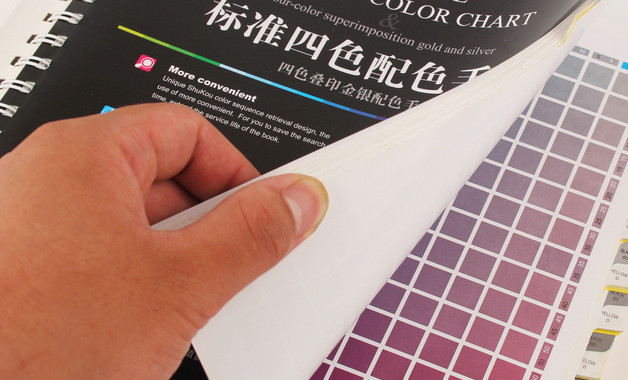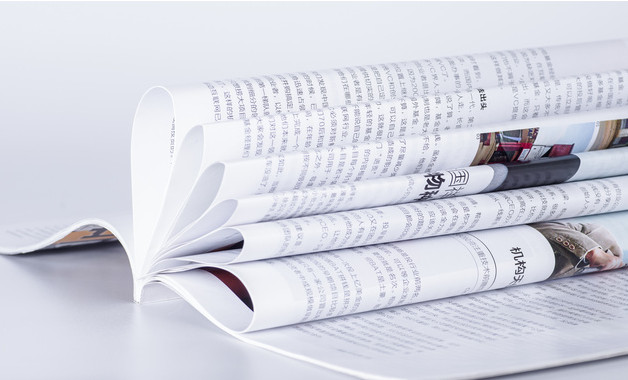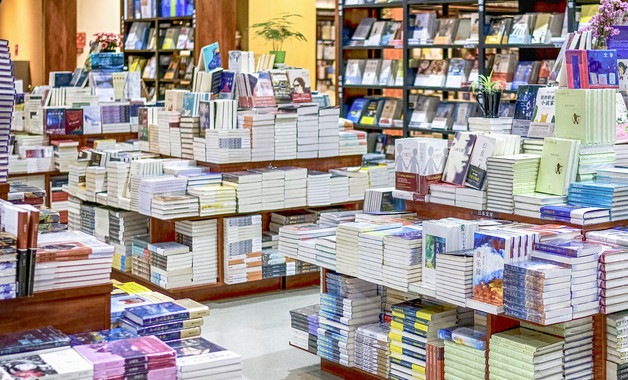
第1篇 ted英语演讲:人类越来越聪明,而阅读的内容越来越蠢
people are getting smarter, contents are getting dumber
演讲者是《the escapist 杂志》的总经理,亚历山大·马克利斯(ale_ander macris)
today, we’re gonna talk about the content we consume and what that consumption is doing to our minds.
今天我们要来谈谈我们消费的内容,以及这种消费对我们思维的影响。
but before i started to talk about content i wanna talk about something else we consume.
但在讲内容之前,我想先谈谈我们消费的另一种东西。
i wanna talk about food.
我想谈谈食物。
when we consume food, we e_perience its taste and we benefit from its nutritional value.
当我们吃食物的时候,我们能体验到它的味道,并从它的营养价值中获益。
taste is subjective. for person to person it can vary.
味道是主观的。不同的人有不同的感受。
nutrition is universal and objective.
而营养是普世的、客观的。
those of us don’t like our broccoli might say that food and taste and nutrition don’t go well together.
我们当中那些不喜欢西兰花的人可能会说:食物、味道、营养不可兼得。
others, strange people, like healthy food.
另一些比较古怪的人则喜欢吃健康食品。
at minimum we can agree that food can be tasty without being nutritious and vice versa.
不过我们至少能达成一个共识:食物可以好吃但没有营养,反之亦然。
now one time the american diet consisted primarily of nutritious food such as organic vegetables, whole gr__n, grass-fed beef.
曾几何时,美国人饮食的主要成分都是有营养的食物,比如有机蔬菜、全麦、用草喂养的牛的肉。
but as food production became market-driven, food companies found that making food tastier is cheaper than making food nutritious, that consumers actually prefer tastier food rather than healthier food.
但是随着食品制造业变得市场导向,食品公司们发现制作更好吃的食物比制作有营养的食物更划算,而且消费者实际上也更喜欢那些更好吃的食物,而不是更健康的食物。
overtime, nutritious food was supplanted by ine_pensive cheap food that was av__lable to everybody didn’t have a lot of nutrition, while healthy nutritious food was limited to the dietary elite, the people that shop at whole foods.
随着时间推移,那些有营养的食物被廉价的食物取代了,那些营养不足的人很容易就能获得这些廉价的食物;而只有那些饮食精英才能获得健康的、有营养的食物,也就是那些在全食超市购物的人。
the gradual erosion of the nutritional value of our food was ignored by almost everybody until the obesity epidemic transformed our love handles into passion bannisters.
而几乎所有人都忽略了这种对食物营养价值的侵蚀,直到肥胖症大面积爆发,并把我们的人鱼线全都变成了游泳圈。
and now we’re the fattest country in the developed world.
结果现在我们是发达国家中最胖的。
i believe when we consume content it’s a lot like eating food.
我觉得,我们对内容的消费和对食品的消费是非常相似的。
like food, content has a taste to it.
就如同食物一样,内容也有自己的味道。
when you e_periencce the avengers, it tastes differently than the dark knight.
当你看《复仇者联盟》的时候,它的感觉和《黑暗骑士》是不一样的。
which you prefer is just a matter of taste.
不管你喜欢哪个,都只是个口味问题。
never before has the content menu offered so many varied e_cellent tastes.
在内容领域,我们还从未有过这么丰富的口味可供选择。
if you enjoy consuming content, the world is an amazing place.
如果你喜欢消费内容,那这个世界真是太美妙了。
but content also has a nutritional value.
不过,内容也是有营养价值的。
just as food feeds our bodies, content feeds our minds.
正如同食物供养着我们的身体,内容供养着我们的思维。
and as with food, the nutritional effective content is objective and universal.
而且和食物一样,内容的营养价值也是客观而普世的。
i’ve summarized the findings from over 40 studies on how content consumption affects us.
我总结了40多项研究的发现,它们都是研究内容消费是如何影响我们的。
nutritious contents increase our knowledge. it e_panse our vocabularies. it improves reflection, critical thinking, problem-solving, visual acuity, imagination.
有营养的内容能够让我们增长知识。它能扩充我们的词汇量。它能提升我们深入思考的能力、批判性思维的能力、解决问题的能力、视觉敏锐度以及想象力。
unhealthy content shortens our attention span. it damages our concentration. it weakens our problem-solving skills and increase impulsivity. and like simple sugars, it leaves you addicted and wanting more.
不健康的内容会缩短我们的注意力时长。它还会损害我们集中精神的能力。它会削弱我们解决问题的,还会让我们更冲动。而且,就像单糖一样,它还会让你上瘾、让你欲罢不能。
we already know that the american diet of food rapidly changed in the 20th century in a way that made it tasty but less nutritious.
我们都知道,美国人的饮食在20世纪经历了急速的变化,越来越好吃但是越来越没有营养。
the american mind has also changed rapidly.
而美国人的思维也同样经历的急速的变化。
did these changes leave our mental diet a healthy balanced on? or have we began to feed our minds as badly as we feed our bodies, consuming nothing but junk all day?
这些改变有没有让我们的思维食谱更健康、更均衡呢?还是说,我们喂养自己思维的方式变得和我们喂养身体的方式一样糟、每天只吃垃圾食品?
if our mental menu is nutritious, we should see people get smarter and sharper. if our mental menu is unwholesome, we should e_pect to see a spreading epidemic of stupidity that would parallel the epidemic of obesity.
如果我们的思维食谱是有营养的,那么我们应该会看到人们变得更聪明、更敏锐。如果我们的思维食谱不那么健康,那么我们应该可以想见:愚蠢会像肥胖症一样变成一个严重的流行疾病。
let’s start by e_amining our reading habits.
我们首先来看看我们的阅读习惯吧。
reading, it turns out it’s the most nutritious way you can consume content.
我们发现,阅读是所有内容消费方式中最有营养的。
the better you are at reading, the better you are at thinking.
你的阅读能力越强,你的思考能力就越强。
and how do you get better at reading? by reading.
而你要怎么提高阅读能力呢?答案是:靠阅读。
educators call this principle the matthew effect.
教育家们把这个原则称为马修效应。
in a series of studies, researchers cunningham and standage have demonstrated repeatedly that a high volume of reading increases knowledge, broadens vocabulary and reduces the cognitive decline of aging.
通过一系列的研究,卡宁汉和斯坦迪奇两位研究者反复地发现:通过大量阅读,你能够增长知识、扩充词汇量,并减缓由衰老造成的认知能力下降。
and all of these studies were controlled for general intelligence and verbal abilities.
而且所有这些研究都覆盖了所有智力水平和所有词汇能力等级。
so in other words, it’s not that smart people reading although they do, but that reading makes you smarter.
所以,换句话说,事情的核心并不是聪明人读书更多(虽然他们的确读得更多),而是读书能让你变得更聪明。
no other type of content consumption has been shown to provide these benefits.
我们还没有发现其他的内容消费方式能有这样的益处。
when you wanna strengthen your muscles, the best way to do it is to lift heavy weights, so i’ve been told.
如果你想锻炼自己的肌肉,最好的办法就是用偏大的重量来进行负重训练(至少我是这么听说的)。
when you wanna strengthen your mind, the best way to do it is to read challenging literature.
如果你想锻炼自己的思维,最好的办法就是阅读有挑战性的文学作品。
so how challenging is our literature today compared to the past?
那么,我们如今的文学作品和以前的那些相比,有多么具有挑战性呢?
i e_plored a corpus of best-selling books for the 300 years period from 1710 to 20__ and assessed sentence length, paragraph length and reading grade.
我研究了从1720__年到20__年这320__年间的畅销书语料库,评估了它们的句子长度、段落长度和阅读等级。
sentence length has been steadily declining for decades from an average of 40 words per sentence to an average of 14.
句子长度一直在稳步下降,从曾经的平均40个单词下降到了平均14个单词。
it’s now as abrupt as our spoken speech. it can’t decrease much further unless we start speaking in tweets.
现在它们已经变得和口语一样直白。再就没法下降了,除非我们都开始用推特体讲话。
paragraph length held steady from the beginning of the 18th century until the middle of the 20th century when it suddenly began to plummet at an accelerating rate. this is when the era of tv began.
段落长度从18世纪到20世纪是一直持平的,但从20世纪开始就加速下滑,而这个时间点正是电视诞生的时候。
books written before 1950 had an average paragraph length of over a hundred words. books written after 1950 had an average paragraph length of 71 words.
1950年以前写的书的平均段落长度超过100个单词。1950年以后写的书的段落长度平均是71个单词。
and if you look at just books written after 20__, the average paragraph has dropped to 58 words.
而如果你只看20__年以后写的书,你会发现平均段落长度已经下降到58个单词。
consequently the reading grade of best-selling books has also plummeted dramatically over time.
结果就是,畅销书的阅读等级也随着时间推移而大幅下降。
the reading grade started at 14.5 for bestsellers in the 1700s and then declined ine_orably. by 20__ it was down to grade 4.5.
1720__年代畅销书的阅读等级是14.5,自那以后它就在无情地下跌。到20__年的时候,已经降到了4.5。
now remember. this has nothing to do with taste. the data is not talking about the aesthetic taste of consuming book. there are enjoyable books written at every reading grade at every genre.
而且,请注意,这和口味没有关系。这些数据并没有谈及读书的美学品味。每个等级、每个门类的书里都有引人入胜的好书。
when we consider reading grade we’re only talking about nutritional value. and from that point of view, what we’ve seen is that bestsellers were once books that challenged the college-educated mind and they are now books that are easy for 5th graders.
当我们谈论阅读等级的时候,我们仅仅是在谈论它的营养价值。从这一点来看,我们发现,畅销书曾经是能够为大学等级的读者带来挑战的东西,而现在连5年级的学生都能够轻易读懂畅销书。
also note that the reading grade of the works clusters tightly as we get around 1940. and the 1940s is when researchers began to develop and promote what they termed readability scores.
还需要注意的是,这些书的阅读等级在1940年左右的时候发生扎堆。而1940年代正好是研究者们开始研发并推广所谓的“可读性分数”的时候。
a readability score is a measure of the degree to which material can be understood by readers. so this flesch-kinc__d reading grade is a readability score.
可读性分数被用来衡量读者能在多大程度上理解一段材料。这个“fk阅读等级”就是一个可读性分数。
once publishers were able to measure readability, they could target the works they published at whatever reading level would reach the greatest number of people.
一旦出版商能够测量可读性,他们就能确定在什么阅读等级出书能够触及最大数量的人。
at the time when the average american could read at the 8th grade level but enjoyed reading at the 6th grade level, that is for recreation. people liked to read te_ts that are two grades beneath their actual reading level.
当普通美国人可以阅读8级的书,但却更喜欢读6级的书时,那其实是在为娱乐而读。人们普遍喜欢读低于他们实际阅读水平两级的书。
unfortunately, research by professor lev vygotsky found that reading is most nutritious when it’s slightly above your current reading level. reading books that are at your present level or below does not improve comprehension.
不幸的是,列夫·威高茨基教授的研究发现,那些稍高于你当前阅读水平的书才是最有营养的。阅读那些与你当前水平持平、或者低于你当前水平的书,并不会提高你的理解能力。
if you wanna increase your vocabulary and knowledge you have to encounter new words and new facts.
如果你想要增长你的词汇量与知识,你必须去面对新的词汇与新的事实。
and this is unfortunate because it means there’s a negative correlation between taste and nutrition.
这是很悲剧的,因为这说明口味与营养之间是呈负相关的。
the books you enjoy are not gonna be the books that are best for you.
那些你读起来觉得愉悦的书,并不会是对你好的书。
so as publishers started to use the readability scores to guide their publishing it was inevitable they were going to start making the material tastier but less nutritious because that’s what we the consumers wanted.
所以,当出版商开始用可读性分数来指导出版工作,他们就不可避免地在让书变得更可口却更没有营养,因为这就是消费者想要的。
and this is similar to what happened when farmers substituted corn for grass in the livestock. the beef tasted better but it became less nutritious.
这就像是农民用玉米代替草料来喂养牲畜,牛肉的口感变好了,但却变得更没有营养了。
the publishers of newspapers and magazines hired readability consultants to purposefully simplify their written content. and as a result, in the past 60 years, the reading level of newspapers and magazines has dropped by 2 to 4 grades.
报纸与杂志的出版商更是专门聘请了可读性顾问来简化他们的内容。结果就是,在过去的60年里,报纸与杂志的可读性下降了2到4级。
decreasing the reading grade of the works allow the newspaper-magazine publishers to greatly increase the audience but it also reduced the nutritional value of reading.
降低材料的阅读等级让报纸与杂志的出版商能够大副提升读者数,但同时也降低了这些阅读材料的营养价值。
now it’s not surprising that market forces are going to cater towards taste rather than nutrition.
所以我们也就能理解为什么市场的力量会偏向于口味,而不是营养。
what’s especially troubling is that our te_tbooks have also been dumbed down.
而真正让人担忧的是,我们的教科书也变得越来越蠢了。
the average 8th grader is now reading from the te_tbooks at the 5th grade reading level.
普通8年级的学生现在正在读着实际只有5年级水平的教科书。
the literature te_t that was required of 12th graders is nowadays simpler than the average 8th grade reading book before world war ii.
现在20__年级被要求读的文学作品,比二战前8年级读的书还要简单。
despite the fact that books are easier to read than ever, the average american today reads less than ever.
而且,虽然现在的书比以往的都更容易读,但普通美国人读书的量也变得前所未有的低。
60% of 18 to 24 year olds used to read literature in 1982. by 20__, this had dropped to 43%.
1982年的时候,18岁到24岁的人中有60%会读文学作品。到了20__年,已经下降到了43%。
the percentage of adults who read for pleasure is decreasing by 7 percent every year.
成年人把读书作为娱乐活动的比例每年都下降7%。
and the average annual spending has dropped from 33 dollars to 28 dollars in the last 20 years.
过去20__年人们用在书上的平均年消费额从33美元下降到了28美元。
it’s accepted that the declining popularity of written media has been caused by the rise of screen media.
人们普遍接受的是,纸媒的流行程度日趋下降是因为屏幕媒体变得越来越流行。
so it’s a dietary shift. it means that not only are americans reading simpler books, flipping through simpler magazines and learning from simpler te_tbooks, they’re doing less all of the above.
所以,我们的饮食方式正在改变。这意味着,美国人不光只能读懂更简单的书、只能翻更简单的杂志、只能看更简单的教科书,而且他们还看得越来越少了。
and these changes have occurred simultaneously with measurable decreases in our nation’s verbal skills.
与这种现象同时发生的还有整个国家语言能力那客观的下降。
this is what the mean verbal sat scores look like after you correct for the fact that the test makers have been adjusting the scores upward to hide the decline.
上面这是sat语言能力分数的平均值,我们在其中剔除了出卷人为了掩盖下降而对分数做出的调整。
there was a 50 point drop between 1962 and 1979. and 1962 tv reached 90% market penetration and te_tbooks got simplified.
从1962年到1979年,分数下降了50分。而1962年电视的市场渗透率达到了90%,并且教科书被简化了。
there has been another 10-point drop since 20__ when internet access went m__nstream.
20__年互联网主流化的时候,又下降了10分。
here’s a comparison of the reading ability of adults in 1949 and 20__, the world before tv and after tv.
这里有一张1949年月20__年成人阅读能力的对比,分别代表电视出现之前与之后的世界。
the number of us adults capable of reading at the 10th grade level dropped from 54% to 20%.
美国成年人中能读10级材料的人,从54%下降到了20%。
the number of reading at even the 6th level dropped from 83% to 52%.
就连能读6级材料的人也从83%下降到了52%。
in other words, more americans could read at the 10th grade in 1949 than can even read at the 6th grade level today.
换句话说,1949年能读10级材料的美国人比现在能读6级材料的还多。
and this is despite the fact that in 1949 the average american had 8 and a half years of education and now the average adult has 12 and a half years of education.
而且这还没说1949年的时候美国人平均只接受8年半的教育,现在则平均是20__年半。
so 4 and a half e_tra years of education to do worse.
都受了4年半的教育,却越来越差了。
so far i focused on printed material because it’s the leafy green vegetables of the content diet.
到目前为止,我都在讲纸质的印刷材料,因为它们是内容中的绿叶蔬菜。
what about screen media? how are they doing?
那屏幕媒体又如何呢?它们的现状又是怎样?
well, printed media has obviously declined in popularity. screen media is doing a little more better.
嗯,纸媒的流行度显然是下降了。屏幕媒体的状况要稍微好一点。
watching television is now the developed world’s favorite activity taking up more free time than anything else.
看电视是现在发达国家最流行的消遣方式,它占据的时间比任何其他事情都多。
the only thing we do more than watching tv is sleep.
唯一一项我们花时间比看电视多的事情,是睡觉。
american aged 15 to 24 spend 2 hours a day watching tv and seven minutes reading for pleasure.
15到24岁的美国人每天花2小时看电视,而用阅读作为消遣的时间只有7分钟。
if books are the leafy green vegetables in the diet, tvs and computers are the d__ly bread.
如果说书是饮食中的绿叶蔬菜。那电视和电脑就是我们每天吃的面包。
now, the good news is that screen media has been shown to increase visual spatial intelligence.
好消息是,有证据表明屏幕媒体可以提高我们的视觉与空间智力。
video games have also been shown to improve hand-eye coordination, thank you, 5-year-old who beat me on _bo_, and divided attention which makes us better at tracking multiple objects at once.
电子游戏被证明能够提高手眼协调能力,感谢某位在_bo_游戏机上打败我的5岁人士证明了这一点,同时它还能锻炼我们一心多用的能力,这让我们能在同一时间内更好地关注多件事情。
the internet has been shown to increase transactive memory which is sort of a meta memory of where to find information like i no longer remember my birthday so i google it.
互联网还被证明能够提高交互式记忆的能力,这是一种关于“信息在哪”的宏观记忆,比如,我不记得自己的生日了,于是就去谷歌上面搜。
in particular, the increase in visual spatial intelligence has been profound and you can see the increased scores on the raven progressive matrices.
值得强调的是,视觉与空间智力的提升是很显著的,你可以从酷猫写作推理测试的分数上看出。
these are non-verbal iq tests which provide a measure of visual intelligence. and screen media are like vitamins for visual ability. tasty tasty vitamins.
只是一种针对非语言类智力的测试,它能衡量一个人的视觉智力。而屏幕媒体就像是视觉智力的维生素。而且是好吃的维生素。
the bad news is that all types of screen media come at a substantial cost.
坏消息是,所有类型的屏幕媒体都伴随着高昂的代价。
professor patricia greenfield summarizes the findings as damages to our deep cognitive processes.
派翠西亚·格林菲尔德教授将这些发现总结为“对深度认知过程的损害”。
a study by the american academy of pediatrics found that for every hour a child spent watching television there was a 9% increase in their attention problems.
美国儿科学会的一项研究表明:一个小孩每多看1小时的电视,他患有注意力障碍的可能性就增加9%。
children between age 11 and 15 spent 53 hours a week in front of the screen.
11到15岁的小孩平均每周有53小时的时间是呆在屏幕前的。
a 20__ study published in br__n and cognition has found that the more we watch television during our middle years, aged 20 to 60, the greater our risk of alzheimer’s.
一项于20__年发表在《大脑与认知》上的研究发现:中年人(20到60岁)看电视的时间越长,他们患老年痴呆症的风险也就越大。
a 20__ study in southern medical journal found that watching lots of soap operas and talk shows was associated with clinically significant imp__rment of attention, memory and psychomotor speed in older people like your professors.
一项于20__年发表在《南方医学杂志》上的研究发现:看太多肥皂剧和脱口秀可以对你们的教授这样的老年人造成严重的注意力障碍、记忆障碍和精神运动障碍,这些都是有临床依据的。
a large part of television effect on our mind is caused by what pavlov calls the orienting response. this is the instinctive response we get to sensitivity of change, vision, sound.
电视对我们思维的很多影响,都是巴甫洛夫所说的“定向反应”。这是我们对影响、声音与变化的本能反应。
our br__ns get turned on by stimuli which triggers dopamine release whenever are....
当有东西促使我们的大脑分泌多巴胺的时候,我们的大脑就会被激发……
sorry.
抱歉。
in the last 2 decades, researchers have begun to e_amine how the shots-cuts edits and effects of television activate the orienting response.
在过去的20__年里,研究者们开始研究电影镜头的剪辑以及电视对定向反应的影响。
a study of eeg activity in the processing of television published in communications research found that the more you have the shots quickly edited the more effect television has on your nervous system.
《沟通研究》发布过一项关于看电视时人的脑电图的研究,它表明:镜头的剪辑越快,电视对你神经系统的影响就越强。
so the average length of shots in our screen media is a benchmark for how healthy it is. to watch shorter cuts make the content more arousing, more addictive and more damaging to our attention span.
所以,屏幕媒体上镜头的长度就是这个媒体健康程度的标尺。更短的镜头剪辑能让内容更刺激、更生动,同时也让它对我们的注意力时长造成更大的伤害。
and unfortunately that’s the direction the screen media’s moved in.
不幸的是,屏幕媒体正在往这个方向走。
in 1972, the average shot length of a us film was 8.6 seconds. now it’s down to 2.5 seconds.
在1972年,美国电影镜头的平均时长是8.6秒。现在已经降到了2.5秒。
film makers call this mtv editing because everything looks like a music video now.
电影制作方把这称为mtv式剪辑,因为现在所有东西看起来都像音乐录影带。
children’s shows are particularly fast cut. a longitudinal study of sesame street found that the average shot length have, over the last 26 years, even dumbed down sesame street.
儿童节目被剪辑得尤其快。有一项关于《芝麻街》的长度研究发现:在过去20__年里,这个节目的平均镜头长度一直在下降,让《芝麻街》变得更蠢了。
these trends are a function of the decreased attention span of the modern mind as well as contributing factors to its further reduction.
这个趋势解释了为什么现代人的注意力时长越来越短,也为它的继续下降奠定了基础。
attention deficient viewers seek out shorter hyperkinetic content which in turn leads to their minds becoming even more attention deficient.
那些注意力不能集中的观众会寻找更动感的内容,而这些内容反过来又让他们的注意力越来越低下。
this is a vicious cycle that becomes a chiche.
这个万恶的循环现在已经成了老生常谈。
how many of you found the blockbuster from the old days to be too slow-paced, boring and long?
你们当中有多少人觉得以前的热门电影又慢、又长、又无聊?
in fact, even 18 minutes is probably too long for a talk in today’s attention deficient world. so we’re gonna have a halftime show.
实际上,在这样一个注意力不集中的世界里,即使是18分钟对于一个演讲来说可能都太长了。所以我们不得不放一点中场休息节目。
you have to imagine this music playing during this part of the presentation because when we listen to music it triggers a comple_ neural process.
现在,在演讲的这个环节,你必须想想一下音乐播放出来的效果,因为听音乐会促使我们的神经系统发生一些列复杂的活动。
a controversial 1993 study published in nature found that listening to mozart increases your spatial task performance.
1993年《自然》杂志上发表了别受争议的研究,它发现听莫扎特的音乐能提高你完成与空间相关的任务的能力。
follow-on studies have found similar effects from other music with similarly comple_ structure such as bach, yanni.
后续的一些研究也发现那些拥有同样复杂结构的音乐,比如巴赫、雅尼,也拥有相似的能力。
a 20__ study found that cognitive recall was increased when listening to unfamiliar classical music.
20__年的一项研究发现:在听不熟悉的古典音乐的时候,认知记忆会得到提升。
a 20__ study found that listening to classical music could improve performance of stressful tasks like ted talks by calming the sympathetic nervous system.
20__年的一项研究发现,听古典音乐能够提高你处理压力任务——比如ted演讲——的能力,因为它能让你的交感神经系统冷静下来。
loud fast music induces stress on the sympathetic nervous system.
音量大、速度快的音乐则会对你的交感神经造成压力。
so these findings are correct.
这些发现是正确的。
and these are less clear.
而以下这些就比较模糊了。
the most nutritious music would be sedating, comple_ and unfamiliar, while the least nutritious music would be loud, simplistic and sound familiar.
最有营养的音乐应该是使人镇静的、复杂的、陌生的;而最没有营养的音乐应该是吵闹的、简单的、听起来耳熟的。
so what direction is pop music been heading in the last 50 years?
所以,过去这50年流行音乐是在往哪个方向发展呢?
well, analysts at the spanish national research council actually evaluated 465,000 pop songs from 1955 to 20__ to evaluate loudness, harmonic, comple_ity and timbrel diversity.
西班牙国家研究委员会评估了1955年到20__年间465000首流行歌曲,测量了它们的音量、和谐度、复杂度以及旋律多样性。
since 1950s, music has tended towards increased inherent loudness. there’s been a reduction in the diversity of chords but given song a reduction in the number of musical pathways between each chord and the timbers of different instruments has gotten more homogeneous every year.
从1950年代开始,音乐本身的音量就一直在加大。和铉多样性也在下降,而且不同乐器、不同旋律之间的差别每年都在变得越来越平均。
since 1955, pop music uses fewer and fewer tones from the av__lable palette.
从1955年开始,流行音乐里使用的音调越来越少。
so overall in the last 50 years, pop music has become louder, more simplistic and more similar.
所以总体来说,在过去50年了,流行音乐变得越来越吵、越来越简单、越来越趋同。
it’s probably becoming less nutritious.
而且也可能在变得越来越没有营养。
and this ag__n is not a measure of taste. in fact we should probably not even discuss my taste in music or my jazz album.
再强调一次,这和品位无关。事实上我们最好不要在这谈论我的音乐品味,或是我的爵士乐专辑。
let’s just say that from an objective review of the cognitive benefits of music you are much better off with mozart.
我们只是说,如果客观地看音乐对认知能力的益处,你最好还是听莫扎特。
so we have answered our starting question.
所以我们已经回答了一开始的问题。
just as the nutritional value of food decline from healthy to unhealthy, so too has the nutritional value of our content decline dramatically.
正如食物的营养价值从健康变得越来越不健康,内容的营养价值也在急剧下滑。
instead of a balanced diet that mi_es great tasting content with nutritious fare, we instead feed our minds with the equivalent of deep fried doughnuts.
我们手头上的并不是一顿兼具口味与营养的均衡大餐,而是想油炸甜甜圈一样的东西。
if we care, of course i did, bad few.
如果我们真的关心的话,当让,我自己是关心的,只是有些小毛病。
if we care of our mind as much as we care about the health of our bodies, we need to begin to balance our content diet as urgently as we need to balance our food diet.
如果我们像关心自己的身体一样关心自己的思维,那我们就急需将我们的内容饮食平衡起来,就像我们急需平衡自己的食物一样。
we don’t need to give up video games. we don’t need to quit watching csi. we can even keep listening to beyonce.
我们并不需要放弃电子游戏。我们也没有必要不看csi。我们也可以继续听碧昂斯。
but it wouldn’t hurt us to read something really hard like edward gibbon’s decline and fall of the roman empire reading grade 17.4 or to watch something slow and methodical like the godfather.
但偶尔读一读像爱德华·吉本的《罗马帝国衰亡史》这样的艰深作品也没有坏处,这本书的阅读等级是17.4;或者你也可以看一看像《教父》这样缓慢而有旋律的作品。
or you can listen to something sonorous and melodic like mozart.
或者你也可以听听莫扎特这种铿锵而有韵律的音乐。
just don’t do all 3 at once because multitasking is the information superhighway to hell.
只是不要同时做这3件事就好,因为一心多用是获取信息的死亡高速路。
thank you.
谢谢大家。
《人类越来越聪明,而我们阅读的内容却越来越蠢》观后感
阅读是一种享受,阅读是一种升华,阅读是一种成长。
在每当我读文章时,总会被文章的内容所吸引。被这所谓的文字所束缚,不能逃脱它的“魔掌”。不知这些作者哪来的“神力”,让人感觉每一字都像是被灌输了生命。每读一句,眼前就清晰的展现出一幅画面。让我在其中翱翔,感受到生命的美好。
在阅读中,我感受到杜甫的“会当凌绝顶,一览众山小”宽阔的胸襟。和文天祥的“人生自古谁无死,留取丹心照汗青。”无私的奉献。还有李白的“长风破浪会有时,直挂云帆济沧海。”执着的理想。
多少次,朱自清的《背影》让我潸然泪下。多少次,海伦凯勒的《假如给我三天光明》让我肃然起敬。多少次,儒勒。凡尔纳的《海底两万里》让我大开眼界。记忆中已记不清还有多少个多少次……
每当夜晚难眠时,我都会拿出一本书,细细的体味。方才安稳的入睡。每当我孤独无聊时,我都会拿出一本书,慢慢的翻阅。与书为友,才不会感到郁闷。每当我无计可施时,我都会拿出一本书,静静的寻觅。才知道怎样去做好这件事。
阅读,我将对你立下海誓山盟:无论贫穷富足、无论环境好坏、无论生病健康,我都是你最忠实的摰友。
第2篇 ted英语演讲:我的阅读世界年
演说题目:我的阅读世界年!
演说者:ann morgan
it's often s__d that you can tell a lot about a person by looking at what's on their bookshelves. what do my bookshelves say about me? well, when i asked myself this question a few years ago, i made an alarming discovery. i'd always thought of myself as a f__rly cultured, cosmopolitan sort of person. but my bookshelves told a rather different story. pretty much all the titles on them were by british or north american authors, and there was almost nothing in translation. discovering this massive, cultural blind spot in my reading came as quite a shock.
and when i thought about it, it seemed like a real shame. i knew there had to be lots of amazing stories out there by writers working in languages other than english. and it seemed really sad to think that my reading habits meant i would probably never encounter them. so, i decided to prescribe myself an intensive course of global reading. 20__ was set to be a very international year for the uk; it was the year of the london olympics. and so i decided to use it as my time frame to try to read a novel, short story collection or memoir from every country in the world. and so i did. and it was very e_citing and i learned some remarkable things and made some wonderful connections that i want to share with you today.
but it started with some practical problems. after i'd worked out which of the many different lists of countries in the world to use for my project, i ended up going with the list of un-recognized nations, to which i added t__wan, which gave me a total of 196 countries. and after i'd worked out how to fit reading and blogging about, roughly, four books a week around working five days a week,
i then had to face up to the fact that i might even not be able to get books in english from every country. only around 4.5 percent of the literary works published each year in the uk are translations, and the figures are similar for much of the english-speaking world. although, the proportion of translated books published in many other countries is a lot higher. 4.5 percent is tiny enough to start with, but what that figure doesn't tell you is that many of those books will come from countries with strong publishing networks and lots of industry professionals primed to go out and sell those titles to english-language publishers. so, for e_ample, although well over 100 books are translated from french and published in the uk each year, most of them will come from countries like france or switzerland. french-speaking africa, on the other hand, will rarely ever get a look-in.
the upshot is that there are actually quite a lot of nations that may have little or even no commercially av__lable literature in english. their books rem__n invisible to readers of the world's most published language. but when it came to reading the world, the biggest challenge of all for me was that fact that i didn't know where to start. having spent my life reading almost e_clusively british and north american books, i had no idea how to go about sourcing and finding stories and choosing them from much of the rest of the world. i couldn't tell you how to source a story from swaziland. i wouldn't know a good novel from namibia. there was no hiding it -- i was a clueless literary _enophobe. so how on earth was i going to read the world?
i was going to have to ask for help. so in october 20__, i registered my blog, ayearofreadingtheworld.com, and i posted a short appeal online. i e_pl__ned who i was, how narrow my reading had been, and i asked anyone who cared to to leave a message suggesting what i might read from other parts of the planet. now, i had no idea whether anyone would be interested, but within a few hours of me posting that appeal online, people started to get in touch. at first, it was friends and colleagues. then it was friends of friends. and pretty soon, it was strangers.
four days after i put that appeal online, i got a message from a woman called rafidah in kuala lumpur. she s__d she loved the sound of my project, could she go to her local english-language bookshop and choose my malaysian book and post it to me? i accepted enthusiastically, and a few weeks later, a package arrived cont__ning not one, but two books -- rafidah's choice from malaysia, and a book from singapore that she had also picked out for me. now, at the time, i was amazed that a stranger more than 6,000 miles away would go to such lengths to help someone she would probably never meet.
but rafidah's kindness proved to be the pattern for that year. time and ag__n, people went out of their way to help me. some took on research on my behalf, and others made detours on holidays and business trips to go to bookshops for me. it turns out, if you want to read the world, if you want to encounter it with an open mind, the world will help you. when it came to countries with little or no commercially av__lable literature in english, people went further still.
books often came from surprising sources. my panamanian read, for e_ample, came through a conversation i had with the panama canal on twitter. yes, the panama canal has a twitter account. and when i tweeted at it about my project, it suggested that i might like to try and get hold of the work of the panamanian author juan david morgan. i found morgan's website and i sent him a message, asking if any of his spanish-language novels had been translated into english. and he s__d that nothing had been published, but he did have an unpublished translation of his novel 'the golden horse.' he em__led this to me, allowing me to become one of the first people ever to read that book in english.
morgan was by no means the only wordsmith to share his work with me in this way. from sweden to palau, writers and translators sent me self-published books and unpublished manuscripts of books that hadn't been picked up by anglophone publishers or that were no longer av__lable, giving me privileged glimpses of some remarkable imaginary worlds. i read, for e_ample, about the southern african king ngungunhane, who led the resistance ag__nst the portuguese in the 19th century; and about marriage rituals in a remote village on the shores of the caspian sea in turkmenistan. i met kuw__t's answer to bridget jones.
and i read about an orgy in a tree in angola.
but perhaps the most amazing e_ample of the lengths that people were prepared to go to to help me read the world, came towards the end of my quest, when i tried to get hold of a book from the tiny, portuguese-speaking african island nation of s?o tomé and príncipe. now, having spent several months trying everything i could think of to find a book that had been translated into english from the nation, it seemed as though the only option left to me was to see if i could get something translated for me from scratch. now, i was really dubious whether anyone was going to want to help with this, and give up their time for something like that. but, within a week of me putting a call out on twitter and facebook for portuguese speakers, i had more people than i could involve in the project, including margaret jull costa, a leader in her field, who has translated the work of nobel prize winner josé saramago. with my nine volunteers in place, i managed to find a book by a s?o toméan author that i could buy enough copies of online. here's one of them. and i sent a copy out to each of my volunteers. they all took on a couple of short stories from this collection, stuck to their word, sent their translations back to me, and within si_ weeks, i had the entire book to read.
in that case, as i found so often during my year of reading the world, my not knowing and being open about my limitations had become a big opportunity. when it came to s?o tomé and príncipe, it was a chance not only to learn something new and discover a new collection of stories, but also to bring together a group of people and facilitate a joint creative endeavor. my weakness had become the project's strength.
the books i read that year opened my eyes to many things. as those who enjoy reading will know, books have an e_traordinary power to take you out of yourself and into someone else's mindset, so that, for a while at least, you look at the world through different eyes. that can be an uncomfortable e_perience, particularly if you're reading a book from a culture that may have quite different values to your own. but it can also be really enlightening. wrestling with unfamiliar ideas can help clarify your own thinking. and it can also show up blind spots in the way you might have been looking at the world.
when i looked back at much of the english-language literature i'd grown up with, for e_ample, i began to see how narrow a lot of it was, compared to the richness that the world has to offer. and as the pages turned, something else started to happen, too. little by little, that long list of countries that i'd started the year with, changed from a rather dry, academic register of place names into living, breathing entities.
now, i don't want to suggest that it's at all possible to get a rounded picture of a country simply by reading one book. but cumulatively, the stories i read that year made me more alive than ever before to the richness, diversity and comple_ity of our remarkable planet. it was as though the world's stories and the people who'd gone to such lengths to help me read them had made it real to me. these days, when i look at my bookshelves or consider the works on my e-reader, they tell a rather different story. it's the story of the power books have to connect us across political, geographical, cultural, social, religious divides. it's the tale of the potential human beings have to work together.
and, it's testament to the e_traordinary times we live in, where, thanks to the internet, it's easier than ever before for a stranger to share a story, a worldview, a book with someone she may never meet, on the other side of the planet. i hope it's a story i'm reading for many years to come. and i hope many more people will join me. if we all read more widely, there'd be more incentive for publishers to translate more books, and we would all be richer for that.
thank you.
常说看一个人的书架 就能了解到这个人很多事情 那么我的书架是怎么展现我的呢? 嗯,当几年前我问自己这个问题时 我被自己吓了一跳 我一直觉得自己是一个有教养的 比较与时俱进的人 但我的书架展现的却是另一回事 大部分的书 作者都是英国或北美的 基本没什么翻译过来的书 在我的阅读里, 我发现了这个庞大的文化盲点 确实挺惊人的
当我仔细去想的时候,真的挺遗憾的 我知道在这个世界上除了英语 一定还有很多其他语言的有趣的故事 而我的阅读习惯意味着 我估计永远也不会去接触这一类书 这想起来让人有点伤心 所以我下定决心 把自己的阅读范围扩大到世界级的范围 20__年对于英国来说是非常国际化的一年 这一年伦敦举办了奥运会 所以我决定把它当成一个时间段 去尝试从世界上不同的国家里 选一本小说来读,不管是短篇的还是自传的 所以我这么做了 非常刺激 我学到很多有用的东西 也了解到很多有趣的联系 让我很想今天跟大家分享
但万事开头难 当我整理出这个世界不同国家的 列表后 我又对照了联合国认证的国家列表 所以我增加了台湾(中国) 所以总共有196个国家 在我算出如何在一周内 一周五天的时间内 读完并记录日志后,
我不得不面对这么一个现实 就是我可能无法获取每个国家书籍的英文版 大约在英国出版的有翻译版本的书籍 仅占全部的4.5% 对于世界上讲英语的其他地区来说, 这个数字也差不多 尽管在许多其他国家 翻译出版的书籍的比例要高很多 4.5%对刚开始来说虽然足够 但这个数字并没有告诉你的 是这些书中很多会来自 拥有强大出版网络的国家 而且当中很多专业人士也很想把这些书 卖给英文出版社 例如,虽然每年有超过100本的法语书 会译成英文在英国发行 但大部分是来自法国或瑞士 另一方面,在非洲讲法语的地区 则几乎没有机会涉及到
结果就是,有很多很多国家 根本进不了英文文学的商业区 根本进不了英文文学的商业区 对世界上发行语言受众最多的读者来说 这些国家的书籍鲜为人知 但当谈到阅读世界这一做法时 对我来说最大的困难就是 我不知道从何入手 我这一生几乎都在阅读 英国和北美的书籍 我根本不知道该怎么搜索寻找 去选择世界上大部分其他地方的作品 我没办法告诉你 要怎么去搜索斯威士兰的文学作品 我不知道纳米比亚有哪些好的文学作品 这些作品并没有被藏起来—— 我在文学上就是一个外盲 那么我到底要怎么去阅读这个世界呢?
我不得不寻求帮助 在20__年10月,我注册了我的博客 ayearofreadingtheworld.com 然后我发了一条简短的求助 我解释我是谁 我的阅读面有多窄 我问有没有人愿意 给我留言,建议我应该去读 这个世界上其他地方的那些书 我当时不知道有没有人会给我留言 但在我发了求助后的几个小时内 人们开始给我回复了 一开始,是朋友和同事 然后就是朋友的朋友 很快,就是陌生人
在我在网上留了那条求助之后的第四天 我收到了一条消息 它来自一位在吉隆坡叫 rafidah 的女士 她说她很喜欢我这个项目的意义 问她能不能去当地的英文书店 然后帮我选马来语书籍然后发给我? 我满腔热情地接受了 几个星期后 包裹来了,里面不是一本,是两本—— rafidah 选的一本是马来西亚的书 还有一本也是她选的,来自新加坡的书 当时,我都惊呆了 一个远在6000英里之外的陌生人 会如此用心去帮一个 她从未见过的陌生人
但 rafidah 的善良,成了那一年的常规 一次又一次,人们用他们的方式来帮我 有些人帮我做了研究 有些人在假期或出差的时候 专门跑一趟书店帮我找书 事实证明,如果你想阅读这个世界 如果你想用开放的思维去与之交流 那么整个世界都会帮你 对于那些 在商业上没什么机会 进入英文文学界的国家来说 人们会更努力地去帮我
这些书籍的来源经常让我出乎意料 举个例子,我的巴拿马阅读,是来自 推特上我和“巴拿马运河”这个账号的对话 是的,巴拿马运河在有推特账号的 当我在推特上发布我这个项目的消息时 它建议说,我可能会想要去读一读 一位叫 juan david morgan 的巴拿马作家的作品 我找到了作家的网站, 然后给他发了一条消息 问他,他的西语小说 有没有被翻译成英文的 他答复说目前还没有出版 但他确实有一份未出版的英文译文 一本名叫《金马》的小说 他用邮件把译文发给我 允许我成为第一批阅读这本书 的英文版本的读者之一
morgan 并不是唯一一个 愿意用这种方式和我分享他的作品的作家 从瑞典到帕劳 作家和翻译家给我发来他们自己出版的书籍 还有未被以英文为母语的出版商挑中的 或者是不再有机会发表的 所有未出版的手稿 这让我有机会一窥某些精彩的世界 比如说,我读了 关于南非国王 ngungunhane 的书籍 他在19世纪领导反抗葡萄牙人 我也读了土库曼斯坦的里海岸边 那些偏僻村庄的结婚仪式 我还读了科威特版本的《bj单身日记》
我还读了安哥拉一场树上狂欢
在人们想尽办法 帮我去阅读这个世界的例子中 可能最让人惊奇的 出现在我网上求助的最后时期 当时我在找一本书 它来自来自说葡萄牙语的 圣多美岛和普林西比岛非洲小岛国 花了好几个月,用尽所有我能想到的办法 去找一本从别的国家翻译成英文的书 (但都找不到) 我觉得剩下的唯一方式 就是看能不能重新去翻译 我当时也没什么把握 不知道是否有人愿意帮我 愿意花时间来为我做这样的事 但,就在我在推特和脸书上发出 寻找会讲葡萄牙语的人 这一消息的一周内 我找到的人多到超乎预期 包括有 margaret jull costa, 在她领域的杰出人才 她翻译了获诺贝尔奖的文学作品 《若泽·萨拉马戈》 然后带着9位志愿者 我找到了一本出自圣多美岛作家的书 然后在网上买了几本 这是其中的一本 我给每个志愿者都发了一本 他们各自从这个系列中选几个短故事 然后开始翻译,然后把译文发给我 在六周内,我已经拥有一本可读的书了
类似的情况在我阅读世界那一年经常发生 我的不知,以及无畏自己的局限 成了一个巨大的机遇 说到圣多美岛和普林西比岛 不单是一个学习新知识的机会 探索新文学作品的机会 还是将人们聚集起来 团结起来创新努力的机会 我的局限反倒成了这个项目的优势
那一年我看过的书开拓了我的视野 那些享受阅读的人就能体会 书籍有着强大能力把你带出自我 进入别人的思想众 所以,至少有一段时间 你能看到别人眼中的世界 这或许不会是一段好过的经历 尤其是你在读一本 文化上与自己的观念大为不同的书 但它却可能很有启发性 与不熟悉的想法产生碰撞 能帮你更好认识自己的想法 也能帮你告诉自己 在你看到这个世界的方式上有哪些盲点
当我回头看我从小到大 读过的大多数英文文学 相比世界上其他书籍的丰富程度 这些书籍确实太狭隘了 每翻一页 便长一智 积少成多 我年初列出的国家列表 从一些列枯燥充满学术的地名 变成了活生生会呼吸的实体
现在,我并不想建议说 单靠读一本书就能大致了解一个国家 但积少成多,那一年我读过的故事 它们的对这个世界展示的丰富性, 多样化性,和复杂性 让我更有存在感 就好像是这些世界性的故事 以及那些想办法帮我阅读这些书籍的人们 是他们让我变得真实 这些天来,当我看着我的书架的时候 或者在我的电子阅读器上思考这些作品时 它们在诉说这一个不一样的故事 这是一个关于书籍的故事 书能将我们联系在一起, 跨越政治,区域,文化,社会,宗教的隔阂 它是人们拥有协同工作的潜能的故事
还有,它是一个证明的故事 证明了我们现在的这个时代,由于有互联网 让一切变得前所未有的方便—— 让一个陌生人来与来自地球另一半 素未谋面的另一陌生人 分享一个故事,一种世界关,一本书 我希望这是一个我阅读这么多年所追求的故事 我也希望会有更多的人可以与我同阅 如果我们都扩宽我们的阅读面, 那么对于出版商来说 就更有动机去翻译更多书籍 我们就有机会更广地阅读了
谢谢
第3篇 ted英语演讲:如何激发每个孩子成为终生阅读者
how to inspire every child to be a lifelong reader
演讲者:alvin irby
中英对照翻译
as an elementary school teacher, my mom did everything she could to ensure i had good reading skills. this usually consisted of weekend reading lessons at our kitchen table while my friends played outside. my reading ability improved, but these forced reading lessons didn't e_actly inspire a love of reading.
作为一名小学教师,我母亲竭尽所能以确保我有良好的阅读能力。她通常在周末时在餐桌前教我阅读,而此时我的朋友们在外玩耍。我的阅读能力提高了,但这种强迫式的阅读教学并没有激发我对阅读的热爱。
high school changed everything. in 10th grade, my regular english class read short stories and did spelling tests. out of sheer boredom, i asked to be switched into another class. the ne_t semester,i joined advanced english.
到高中时,这一切改变了。在十年级时,我的常规英文课要求阅读短篇故事和测试拼写。因为感觉实在无聊,我要求转去另一门课。在下一个学期,我加入了高阶英语课。
we read two novels and wrote two book reports that semester. the drastic difference and rigor between these two english classes angered me and spurred questions like, 'where did all these white people come from?'
那学期,我们要读两本小说并写两篇读书报告。这两门英语课之间的巨大差异和严格程度让我很生气也引发了像这样的问题,“这些白人是从哪来的?”
my high school was over 70 percent black and latino, but this advanced english class had white students everywhere. this personal encounter with institutionalized racism altered my relationship with reading forever. i learned that i couldn't depend on a school, a teacher or curriculum to teach me what i needed to know. and more out of like, rebellion, than being in tell ectual, i decided i would no longer allow other people to dictate when and what i read. and without realizing it, i had stumbled upon a key to helping children read. identity.
黑裔和拉丁美洲裔学生在我的高中占学生总数的70%,但这门高阶英语课上遍布着白人学生这样的制度化种族主义的个人遭遇永久地改变了我与阅读的关系。我发现我不能依赖于一个学校,一位老师或课程来教我那些我需要知道的。主要因为叛逆,而非理智,我决定我再也不会让其他人来决定我应该在何时阅读以及阅读什么。我已偶然发现了一把帮助孩子阅读的钥匙,虽然我当时并没有意识到这一点。那就是认同。
instead of fi_ating on skills and moving students from one reading level to another, or forcing struggling readers to memorize lists of unfamiliar words, we should be asking ourselves this question: how can we inspire children to identify as readers?
不应只专注于技能和将学生从一个阅读级别升到下一级,或逼迫阅读有困难的学生去记忆不熟悉的字列,我们应当问我们自己这个问题:我们如何启发孩子们认同自己是阅读者?
desean, a brilliant first-grader i taught in the bron_, he helped me understand how identity shapes learning. one day during math, i walk up to desean, and i say, 'desean, you're a great mathematician.' he looks at me and responds, 'i'm not a mathematician, i'm a math genius!'
迪翔,一位我在布朗克斯区教过的聪明的一年级学生,他帮助我懂得了认同感如何塑造学习行为。有一天在数学课上,我走向迪翔,说,”迪翔,你是个很棒的数学家。“他看着我回答说,”我不是个数学家,我是个数学天才!“
ok desean, right? reading? completely different story. 'mr. irby, i can't read. i'm never going to learn toread,' he would say. i taught desean to read, but there are count less black boys who rem__n trapped in illiteracy. according to the us department of education, more than 85 percent of black male fourth graders are not proficientin reading.
好吧,迪翔,是吧?阅读呢?情形完全不同。他说:“尔比先生,我不会阅读。我永远也学不会阅读。'我教会了迪翔去阅读,但有无数黑人男孩们仍然是文盲。根据美国教育部统计,超过85%的四年级黑人学生不擅长阅读。
85 percent! the more challenges to reading children face, the more culturally competent educators need to be. moonlighting as a stand-up comedianfor the past eight years, i understand the importance of cultural competency,which i define as the ability to translate what you want someone else to knowor be able to do into communication or e_periences that they find relevant andengaging.
85%!孩子们面对的阅读挑战越多,教育者们所需要的文化能力越高。在过去八年兼职做喜剧演员时,我了解到文化能力的重要性,我认为这种能力可以把你想要别人知道或能够做到的,翻译成他们认为与之有关且愿意参与的交流或体验。
before going on stage, i assess an audience. are they white, are they latino? are they old, young, professional, conservative? then i curate and modify my jokes based on what i think would generate the most laughter. whileperforming in a church, i could tell bar jokes. but that might not result inlaughter.
在上台之前,我会评估观众。他们是白人?拉丁美洲人?他们年长、年轻、专业、还是保守?然后我会策划和修改我的笑话依据我对怎样能引发更多笑声的考量。我在教堂表演时可以说个酒吧笑话。但可能根本没人会笑。
as a society, we're creating reading e_periences for children that are the equivalent of telling bar jokes in achurch. and then we wonder why so many children don't read. educator and philosopher paulo freire believed that teaching and learning should be two-way.students shouldn't be viewed as empty buckets to be filled with facts but as cocreators of knowledge.
在社会环境中,我们为孩子们创造阅读体验就像是在教堂里讲酒吧笑话。然后我们纳闷为什么这么多孩子不阅读。教育家兼哲学家保罗·弗莱雷相信教和学应该是双向的。学生们不应被看作是需要被填满事实的空桶,而应是知识的共同创作者。
cookie-cutter curriculums and school policies that require students to sit statue-still or to work in complete silence -- these environments often e_clude the individual learning needs, theinterest and e_pertise of children. especially black boys.
一刀切的课程和学校政策要求学生端坐或保持安静——这些环境通常抑制了孩子们的个体学习需求、兴趣和专长。尤其是黑人男孩们。
many of the children's books promoted to black boys focus on serious topics, like slavery, civil rights and biographies.less than two percent of teachers in the united states are black males. and a majority of black boys are r__sed by single mothers. there are literally young black boys who have never seen a black man reading. or never had a black manencourage him to read. what cultural factors, what social cues are present thatwould lead a young black boy to conclude that reading is even something he should do?
很多给黑人男孩的儿童书籍都聚焦在诸如奴隶制、公民权利和传记这样的严肃主题。黑人男性在美国教师中占比不到2%。大多数黑人男孩由单亲母亲抚养。甚至还有黑人男孩从来没见过一个黑人男性阅读。或从来没有被一个黑人男性去鼓励阅读。有什么文化因素、社会诱因来使得一个黑人男孩觉得阅读是一件他应该做的事?
this is why i created barbershop books.it's a literacy non profit that creates child-friendly reading spaces in barbershops. the mission is simple: to help young black boys identify as readers.lots of black boys go to the barber shop once or twice a month.
这是为什么我创立了理发店书籍(barbershopbooks)。这是一个扫盲的非营利组织旨在理发店里创造对孩子们友好的阅读空间。使命很简单:就是帮助年少的黑人男孩认同自己是阅读者。很多黑人男孩每月去理发店一两次。
some see their barbers more than they see their fathers. barbershop books connects reading toa male-centered space and involves black men and boys' early reading e_periences. this identity-based reading program uses a curated list ofchildren's books recommended by black boys. these are the books that they actually want to read.
有些孩子见到理发师的次数比见到他们父亲的次数还多。理发店连接着阅读和以男性为主导的空间并让黑人男性参与到男孩早期阅读体验中。这个基于认同的阅读计划使用由黑人男孩推荐的儿童书籍清单。这些是他们想要去读的书。
scholastic's 20__ kids and family report found that the number one thing children look for when choosing a book is abook that will make them laugh. so if we're serious about helping black boysand other children to read when it's not required, we need to incorporate relevant male reading models into early literacy and e_change some of thechildren's books that adults love so much for funny, silly or even gross books,like 'gross greg'.
学者出版社(scholastic)20__年的儿童与家庭报告发现孩子们在选书时首先会找让他们发笑的书。所以如果我们真要帮助黑人男孩和其他孩子去主动阅读,而不是强迫阅读时,我们需要将相关的男性阅读模型融入到早期识字学习中。有些儿童书籍成人们也非常喜欢那些有趣、愚蠢、甚至恶心的书,像《恶心的格雷》(grossgreg)(笑声)
'you call them boogers. greg callsthem delicious little sugars.'
”你称它为鼻屎。格雷称它为美味的小糖。“
that laugh, that positive reaction or grossreaction some of you just had,black boys deserve and desperately needmore of that.
那些笑声、正面的反应或你们有些人觉得恶心的反应,(笑声)
dismantling the savage inequalities thatplague american education requires us to create reading e_periences thatinspire all children to say three words: i'm a reader.
黑人男孩应该有,并迫切需要更多。消除困扰着美国教育的野蛮不平等。需要我们创造阅读体验来激发所有孩子们说出这些词:我是阅读者。
thank you.(applause)
谢谢。(掌声)









